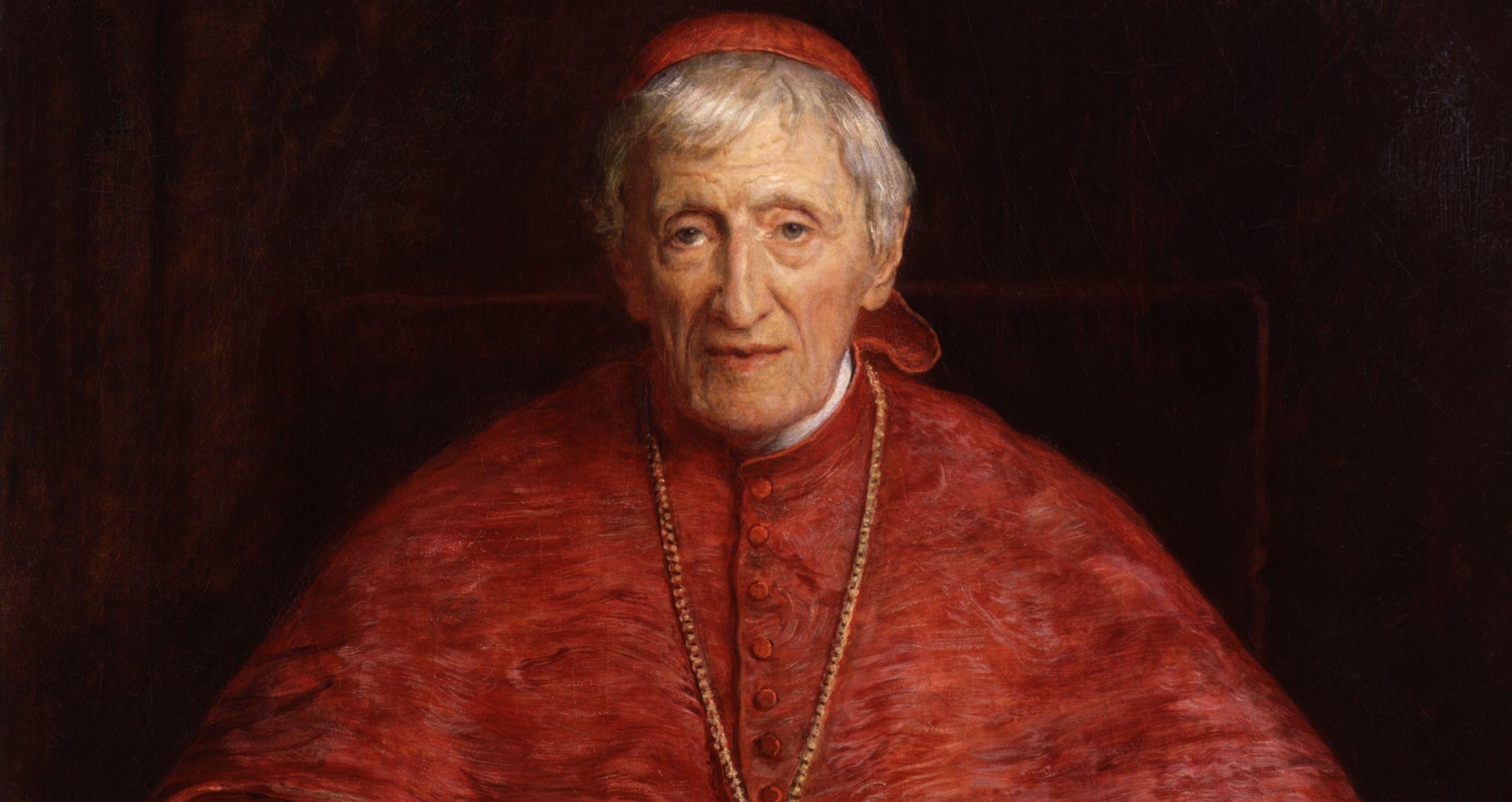Archbishop Vigneron lauds announcement, says Blessed Newman 'a tremendous inspiration to me and my priestly ministry'
VATICAN CITY (CNS) -- Pope Francis has signed a decree recognizing a miracle attributed to the intercession of Blessed John Henry Newman, the English cardinal, clearing the way for his canonization.
The Vatican announced Feb. 13 that Pope Francis had signed the decree the day before.
Also Feb. 12, he formally recognized that the late Hungarian Cardinal Jozsef Mindszenty, jailed and exiled by the communists, had lived the Christian virtues in a heroic way; the recognition is an early step in the sainthood process.
In the sainthood cause of Blessed Newman, Bishop Philip Egan of Portsmouth had reported in November that the proposed miracle involved a young law graduate from the Archdiocese of Chicago who faced life-threatening complications during her pregnancy but suddenly recovered when she prayed to the English cardinal for help.
Blessed Newman was born in London in 1801 and was ordained an Anglican priest in 1925. He was a leader in the Oxford Movement in the 1830s, which emphasized the Catholic roots of Anglicanism.
After a succession of clashes with Anglican bishops made him a virtual outcast from the Church of England, he joined the Catholic Church at the age of 44 and was ordained a Catholic priest in 1846. Pope Leo XIII made him a cardinal in 1879 while respecting his wishes not to be ordained a bishop.
A theologian and poet, he died in 1890 and his sainthood cause was opened in 1958. Pope Benedict XVI beatified him in Birmingham, England, in 2010.
Archbishop Allen H. Vigneron of Detroit, who has quoted Blessed Newman's homilies and writings extensively in his own preaching and catechesis, released a statement Feb. 13 saying he was thrilled at the news of the impending canonization.
“Blessed John Henry Newman has been a tremendous inspiration to me and my priestly ministry. I am very thankful that our Holy Father has approved a second miracle through the intercession of Cardinal Newman,” Archbishop Vigneron said. “His motto, Cor ad cor loquitor – 'Heart speaks to heart,' underscores our need to unleash the Gospel through personal, one-on-one interactions that lead each of us into a closer relationship with Jesus. I invite you to join me in prayers of thanksgiving for this important step toward his canonization and for his ongoing service to the people of God.”
Fr. Dan Jones, pastor of the Detroit Oratory-in-Formation at Our Lady of the Rosary Parish and associate professor of theology of Sacred Heart Major Seminary in Detroit, said Blessed Newman had a profound impact on Catholic intellectual thought in the English-speaking world.
"He might be one of the greatest English-speaking intellectuals in the Church," Fr. Jones said. "He himself had a profound influence in helping the Church figure out its place in the modern world. Just as St. Thomas Aquinas synthesized the Church with Greco-Roman thought, Blessed John Henry Newman helped the Church understand itself in the context of modernity. He was by far the greatest English-speaking Catholic preacher of his time."
Fr. Jones added that Blessed Newman's example of bringing the Oratory of St. Philip Neri to England, a community that relied on secular priests living together in communion without taking formal vows, has a profound impact and influence on priests living in the Detroit oratory.
"It is a great joy for us, forming a community of the Oratory of St. Philip Neri in Detroit, because within the institute, Cardinal Newman was very influential," Fr. Jones said. "When he became a Catholic, he went to the pope to consider in what context he should consider with his ordination in living his priestly life. The pope recommended looking at the oratory, and that's when John Henry Newman brought the oratory to England."
The date for his canonization will be announced after Pope Francis holds a meeting of cardinals to formalize their support for declaring Blessed Newman a saint.
The sainthood cause of Cardinal Mindszenty, who led the Archdiocese of Esztergom, Hungary's primatial see, is in its initial stages. The decree of "heroic virtues" means he can be called "venerable."
He was born March 29, 1892, in what was Austro-Hungary and was ordained to the priesthood in 1915, named archbishop in 1945 and a cardinal in 1946.
Arrested by the communists in 1948 on charges of treason, Cardinal Mindszenty was tortured into confessing. He was sentenced to life in prison.
During the Hungarian Revolution of 1956, he was released, but when Soviet forces invaded Hungary to restore the communist government, he took refuge in the U.S. Embassy in Budapest. He spent more than 15 years there.
After negotiations with St. Paul VI, the cardinal was allowed to leave Hungary in 1971. He died in exile in Austria in 1975. Once democracy was restored, his body was reburied in Hungary in 1991.
In other decrees signed Feb. 12, Pope Francis recognized:
- The miracle needed for the canonization of Blessed Thresia Chiramel Mankidiyan, the Indian founder of the Sisters of the Holy Family. She died in 1926 and was beatified in 2000.
- The martyrdom of Jesuit Father Victor Emilio Moscoso Cardenas, who was killed in Ecuador in 1897.
- The heroic virtues of Father Giovanni Battista Zuaboni, an Italian diocesan priest who founded the Company of the Holy Family. He died in 1939.
- The heroic virtues of Spanish Jesuit Father Emmanuel Garcia Nieto, who died in 1974.
- The heroic virtues of Sister Letizia Formai, the Italian founder of the Missionary Sisters of the Good News; she died in 1954.
- The heroic virtues of Sister Ana Julia Duque Hencker, the Colombian founder of the Sisters of the Annunciation, who died in 1993.
Detroit Catholic staff contributed to this article.









